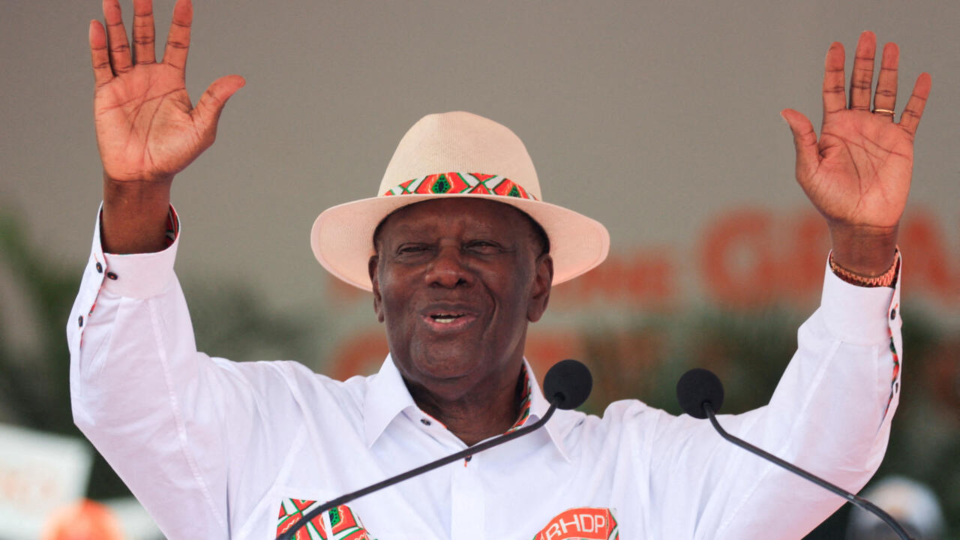Incumbent President Ouattara Declared Winner of Ivory Coast Election, Securing Fourth Term Amid Opposition Boycott and Low Turnout
Abidjan, Ivory Coast - President Alassane Ouattara has been officially declared the winner of Ivory Coast's presidential election, extending his leadership for a fourth consecutive term in a vote widely criticized for excluding major challengers and drawing subdued public engagement. The announcement, made on October 27, 2025, by the Independent Electoral Commission, underscores Ouattara's enduring grip on power in the West African nation, but it also highlights deepening divisions and unresolved tensions that could challenge his ability to unify a polarized society.
The election unfolded on October 25, 2025, pitting the 83-year-old incumbent against a field of four lesser-known candidates. Ouattara, who has held office since 2011, dominated the ballot with a commanding 89.77 percent of the votes, according to provisional results broadcast on state television. The commission's president, Ibrahime Coulibaly-Kuibiert, revealed these figures during a formal address, emphasizing the process's transparency while acknowledging the modest participation rate. Voter turnout hovered around 50 percent among nearly nine million eligible citizens, a level on par with the 2010 and 2015 polls but a sharp drop from the 80 percent recorded in the first round of 2010. This participation, while sufficient to legitimize the outcome in the eyes of supporters, has been interpreted by critics as a quiet rebuke to the race's structure.
Among Ouattara's opponents, former Commerce Minister Jean-Louis Billon emerged as the runner-up with 3.09 percent of the vote, followed by former First Lady Simone Gbagbo at 2.42 percent. Billon, representing a coalition outside the traditional opposition strongholds, extended congratulations to Ouattara on October 26, signaling a willingness to collaborate on national priorities. The other two candidates trailed far behind, their campaigns hampered by limited resources and party backing. Notably absent from the contest were two heavyweight figures: former President Laurent Gbagbo, disqualified over a prior criminal conviction, and Tidjane Thiam, the ex-CEO of Credit Suisse, barred for obtaining French citizenship. These exclusions, enforced by electoral authorities, effectively transformed the election into a one-sided affair, prompting accusations that Ouattara's administration had engineered the field to favor his re-election.
Opposition voices, though muted by the disqualifications, expressed profound discontent in the lead-up to the vote. Protests flared sporadically in Abidjan and other cities weeks earlier, driven by supporters of the banned candidates and organized under the banner of the Common Front campaign group. Security forces responded decisively, imposing a nationwide ban on demonstrations and detaining more than 200 participants. This crackdown, coupled with the perceived violation of constitutional term limits, fueled widespread abstention at the polls. Ouattara's bid for a fourth term rests on a 2016 constitutional reform that he argues reset his tenure count, allowing him to run again after two prior victories. Detractors, however, view this maneuver as a slide toward authoritarian rule, eroding democratic norms in a country scarred by past political violence.
The results now await final certification from the Constitutional Council in the coming days, a step that could either solidify Ouattara's mandate or invite further legal challenges. While no formal allegations of ballot fraud surfaced in the immediate aftermath, the pre-election suppressions and rival bans have cast a shadow over the process's fairness. International observers, though not prominently quoted in early reports, are expected to weigh in on these dynamics, potentially influencing global perceptions of Ivory Coast's democratic health.
Ouattara's political journey traces back to a distinguished career in international finance, including stints at the International Monetary Fund and the Central Bank of West African States, before he assumed the role of prime minister in 1990. His presidencies have prioritized economic revitalization, attracting foreign investment, bolstering infrastructure, and restoring stability to the world's top cocoa producer, a former French colony once ravaged by civil strife. Achievements include sustained growth rates and enhanced security measures, yet persistent hurdles loom large. Public debt stands at about 60 percent of gross domestic product, while social disparities remain stark: corruption scandals erode trust, educational and healthcare access lags, living expenses burden households, and youth unemployment stokes frustration. Ouattara has pledged targeted reforms to narrow these gaps and generate jobs, but implementation will test his administration's resolve.
Security concerns amplified the stakes of this election, as regional instability from Sahel neighbors like Mali and Burkina Faso creeps southward. Armed groups, including Jama’at Nusrat al-Islam wal-Muslimin and the Islamic State in the Greater Sahara affiliate, have intensified activities along Ivory Coast's northern borders. In response, the government has ramped up defense spending since 2022, stationing additional troops in vulnerable areas and procuring armored vehicles from partners such as China. Ouattara's campaign leaned heavily on these themes, framing his leadership as essential for safeguarding national sovereignty amid external threats. Domestically, the vote arrives at a juncture of internal flux, with the ruling party grappling over succession. No obvious heir apparent has emerged, raising alarms about a potential power vacuum akin to the chaos that erupted after the 1993 death of founding President Felix Houphouet-Boigny.
Analysts caution that without a clear path to generational handover, Ivory Coast risks disillusionment among its populace, who may increasingly doubt politics as a force for progress. Ouattara has committed to fostering such a transition, but bridging the nation's ethnic and regional divides will demand concerted outreach to alienated factions. As he prepares to lead through 2030, the onus falls on him to convert this electoral triumph into tangible unity and reform, lest simmering resentments boil over into broader unrest. For now, the streets of Abidjan remain calm, but the echoes of excluded voices linger, a reminder of the fragile balance sustaining Ivory Coast's democratic experiment.


